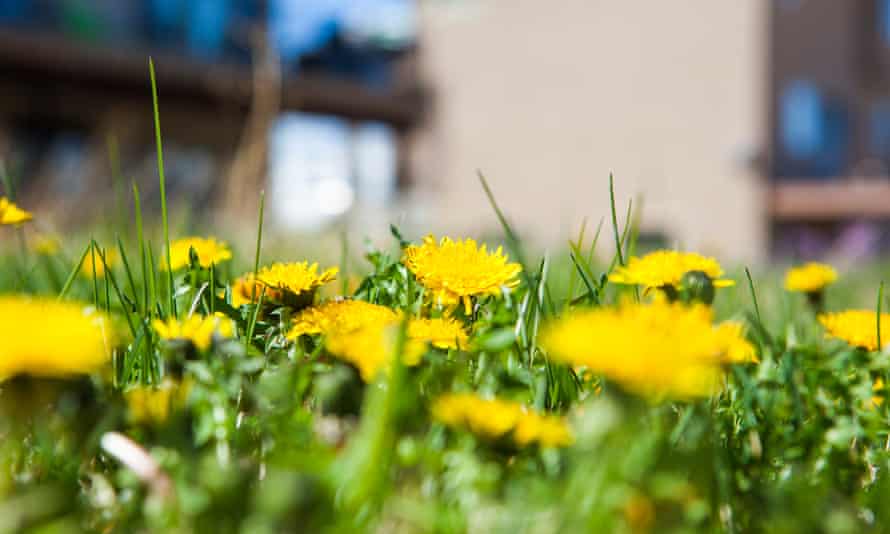Council accused of taking ‘rewilding’ too far as weeds take root in Brighton
Older residents reported to be tripping on pavement weeds, but Green council leader praises their biodiversity

A Green-led council has been accused of taking rewilding too far by allowing so many weeds to flourish that they have become a health hazard, with some residents requiring hospital treatment after tripping up on overgrown pavements.
Brighton and Hove council, which has been under Green party control since last year, has banned toxic weedkillers that include chemicals such as glyphosate after a petition from residents.
But it is now struggling to control the resulting “growth spurt” in pavement weeds – a problem made worse by pandemic staff shortages.
The issue threatens to pit the city’s younger generation, who largely back rewilding, against older suburban residents who favour tidiness and safety.
Alistair McNair, a Conservative councillor for Patcham on the northern edge of Brighton, said: “Of all the complaints I get, weeds are among the top three issues. In some streets weeds are 2ft high.”
He said that some people had complained of nasty falls after tripping on weeds. “I have been told by a few residents that they or their relatives have fallen over and some have been hospitalised,” he said. “For a lot of residents it’s a really important issue.”
He added: “Weeds on pavements is not rewilding and it’s not attracting insects, it is breaking up pavements and a lot of people are infirm and really unhappy about it.”
McNair backed the ban on glyphosate, but urged the council to find other ways to remove weeds. He said: “Residents have told me there are cheaper ways of doing it – people have said salt water kills weeds – and you can use non-glyphosate weed killers.”
A fellow Conservative councillor, Robert Nemeth, told the Sunday Times: “It’s all very well for trendy city-dwellers to say: ‘Let’s rewild our pavements’ … They probably haven’t got any friends who are elderly or disabled.”
But the council’s Green party leader, Phelim Mac Cafferty, defended the policy as a way of increasing biodiversity. He said: “Native wildflower species such as dandelion, red clover and hogweed are incredible for supporting the most pollinating insects. This in turn supports a wider thriving ecology.”
He said that all political parties backed a call to ban pesticides when it was first implemented by the previous Labour-led council in 2019.
He added: “It was made clear to councillors that this ban on glyphosate would lead to more weeds on paved areas. But many residents have also welcomed the weeds as habitats for insects and bees and complain when the city council removes them.”
Mac Cafferty said extra staff were deployed to manually remove weeds, but he accepted that this strategy had been hit by Covid staff shortages and a summer “growth spurt”.
He added: “We understand the need to make sure pavements are passable and safe. So we are now seeking contractors who can help speed up the weed removal programme. We remain resolute in tackling the climate and ecological emergency and the ceasing of pesticide use is one way we can do this. “
McNair said: “This was an issue before Covid. Many of the streets in my ward are occupied by elderly residents. And they believe that removing weeds is a core responsibility of the council and it is not being done.”
He added: “The Greens mainly represent the centre of town where you don’t have as many verges and green spaces. There might be an elementary lack of understanding about different needs of residents across the city. The ward I represent is older but there are a lot of young families here too. I get complaints from people with wheelchairs and pushchairs.
“I have raised the issue in council and I was told by one councillor that residents like the weeds. Some councillors think this is part of rewilding, whatever that means.”